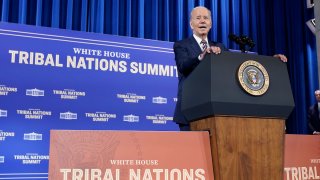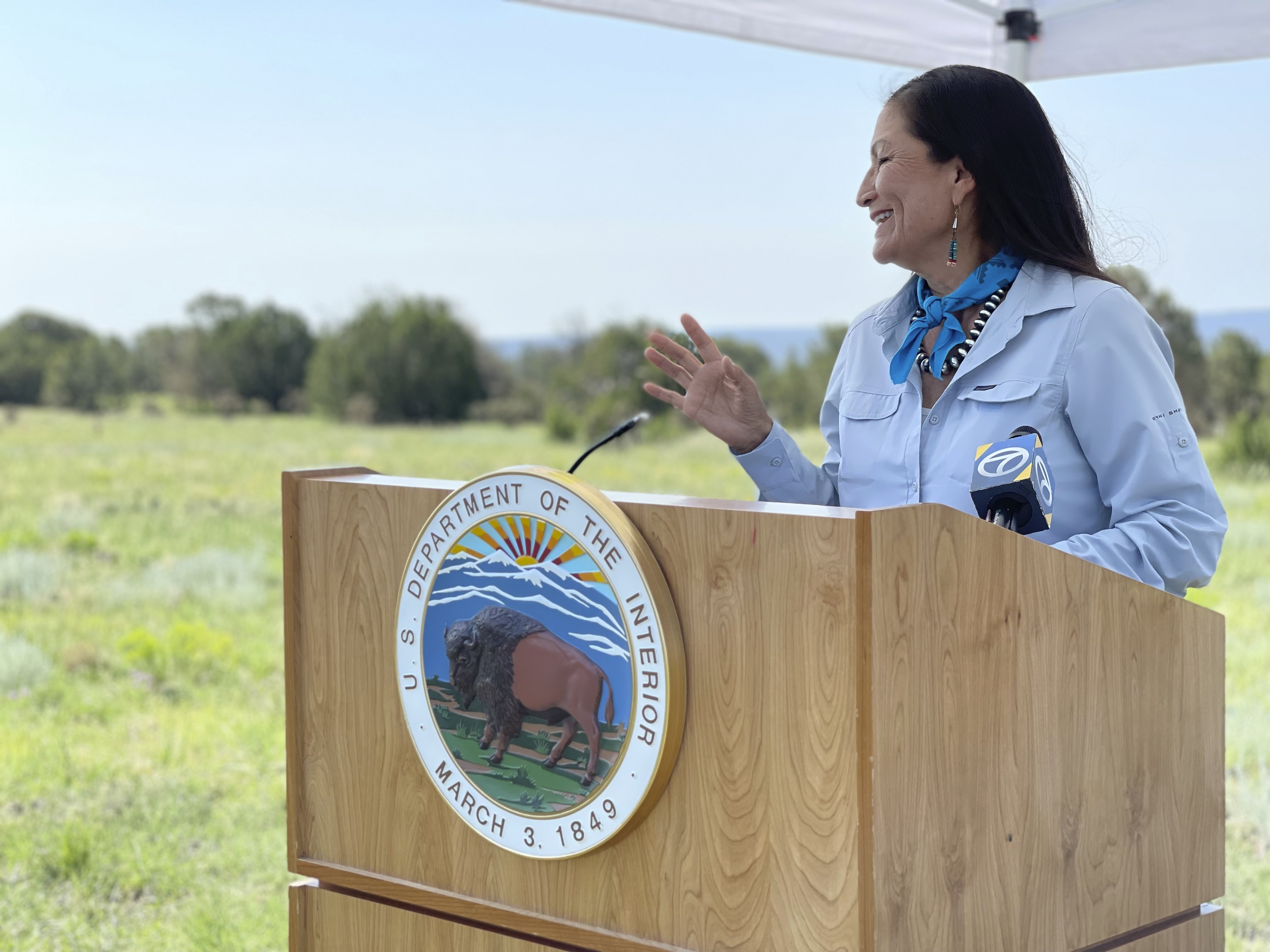
President Joe Biden will sign an executive order on Wednesday during a tribal nations summit that aims to make it easier for Native Americans to access federal funding and have greater autonomy over how to invest those funds.
“Tribal nations still face unacceptable barriers to fully exercising their inherent sovereignty, and really too often that occurs because of the way we are administering federal funding programs," said Neera Tanden, White House domestic policy adviser.
Historically, Tanden said, federal policies attacked Native people's rights to self-governance and caused lasting economic damage. The Biden administration is working to undo that damage, she said.
The order in part creates a clearinghouse for Native American tribes to find and access federal funding, and it requests that federal agencies ensure that funding is accessible and equitable.
Get top local stories in DFW delivered to you every morning. Sign up for NBC DFW's News Headlines newsletter.
The order will be unveiled on the first day of an annual summit, when Biden is expected to address Native American leaders gathered in Washington. The Democratic administration is also expected to announce more than 190 agreements that allow tribes to manage federal lands, waters and natural resources and a new study to help better interpret and tell the history of Native Americans, particularly during periods of federal reform.
“Yes, there are parts of our history that are painful, but there are also those that we celebrate and that show our resilience, strength and our contributions,” said Interior Secretary Deb Haaland, a member of the Pueblo of Laguna.
The Department of the Interior is also working on final revisions to a rule overhauling how human remains, funerary objects and sacred objects are repatriated. The new rules streamline the requirements for museums and federal agencies to identify possible items for repatriation.
Biden hosted the summit in person last year and virtually the year before.
This year, White House officials said, the goal is to provide an opportunity for tribal leaders to have more meaningful conversations directly with members of Biden's Cabinet.
While the federal government has an obligation to consult with tribal governments, some Native American and Alaska Native leaders have complained that federal agencies often treat the process as a check-the-box practice despite efforts by Haaland to make changes.
From Nevada to Alaska, permitting decisions over mining projects, oil and gas development and the preservation of sacred areas, for example, have highlighted what some leaders say are shortcomings in the process.
Officials also announced that the White House Council on Native American Affairs, which is co-chaired by Haaland and Tanden, has published a guide outlining best practices and procedures for the management, treatment and protection of sacred sites. The document was recently finalized after taking into account feedback from tribal leaders.
Montoya Bryan in Albuquerque, New Mexico, contributed to this report.



